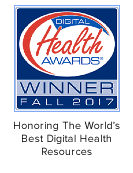Heart Disease
Prevention And Early Detection
Frequently Asked Questions
When Should I Start Worrying About My Heart?
From the time you are born,
someone has your back and your heart…
What Is My Risk For Heart Disease And Stroke?
Check out the Heart Disease Risk Calculator Tool on this page.
What Is Heart Disease?
Heart disease is an umbrella term
that covers many types of heart conditions…
What Are The Signs And Symptoms of Heart Disease?
Don’t miss this section. It could help save your life.
How Can I Reduce My Chances Of Getting Heart Disease?
Six healthy habits that can help prevent heart disease.
Keeping Your Heart Healthy
From the first moment your heart beats, someone loves you. It is for this reason that you should keep your heart healthy. Heart disease is the #1 killer of women and men living in the United States. On average, there are 720,000 people that have a heart attack every year. That is a staggering number! However, there are some warning signs that should not be ignored. For everyone, feeling pressure, discomfort, pain, or tightness in the chest is a sign that something is amiss, and you must get checked out by a medical professional immediately.
Signs of a potential heart attack differ in men and women. Men are said to experience pain in the chest, shortness of breath, unexplained pain the arm, shoulder, back, neck, and jaw, and also a feeling of overall weakness. For women, they may experience stomach issues (such as indigestion), vomiting, sleep disturbances, and unusual tiredness.
Lifestyle Choices Can Minimize
The Risk Of A Potential Heart Attack Or Stroke
If you are overweight the pressure on your heart increases; therefore, make it a priority to lose weight, by eating high fiber foods, fresh fruits, and plenty of leafy green vegetables. When you decrease pounds from your waistline your chances of having a happy and healthy heart increases.
Exercise, even a brisk walk 30 minutes a day, can reduce heart disease as it will keep the muscle active and strong and also help you maintain a healthy weight. Tobacco intake is known to have a negative impact on your heart and your lungs, so take steps to quit smoking. Excessive alcohol is also very harmful to your heart. Additionally, the heart muscle does not respond favorably to excessive stress, so take time to relax and enjoy life.
The quickest and easiest way to self-check your heart is to take your pulse, as this will check your heart rate as well as the rhythm. Basically, your heart rate indicates the strength of blood flow throughout your body.
To check your own pulse, get a watch with a second hand, put your index and middle finger on the inner wrist of the opposite arm and you should feel a pulsing sensation below your fingers. Count the number of pulses you feel in 10 seconds and multiply that number by 6. If this number is consistently lower than 60 or higher than 100, it is an indication of an irregular heartbeat and should be checked out by a healthcare professional.
Sign-up For Free NewsMinder | Send A Free e-Card
What To Do If You Find Something? | How To Find A Health Professional
Doctor Visit Questionnaire | Fill out Your Family History Tree
Go to the Diabetes Detection Page








